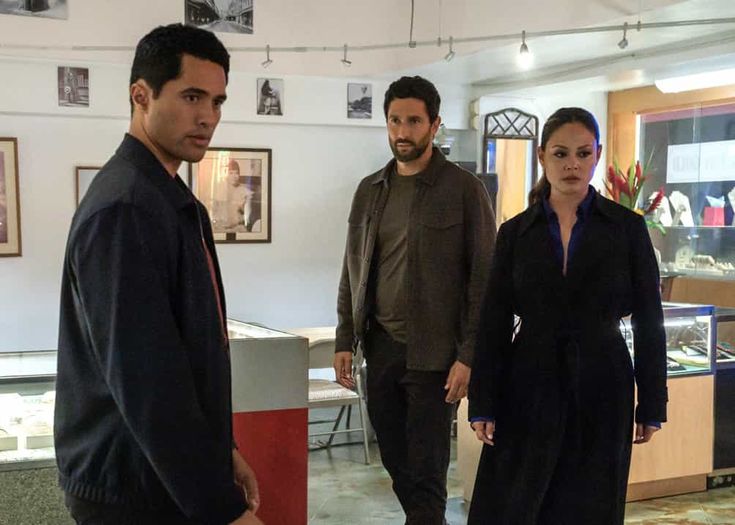
The Price Tag Behind the Paradise
Ever watched NCIS: Hawai‘i and thought: “Wow, that scenery is stunning!”? Me too. But there’s a reason paradise comes with a price. Producing a prime-time show in Hawaii isn’t just snapping photos in front of a volcano—it involves logistics, transportation, permits, labor, and a whole lot more.
What Makes Hawaii An Expensive Backdrop
Shipping and Transport: Getting Everything There
-
Freight and Air Cargo – Gear, sets, costumes—all have to be shipped or flown in. That adds up fast.
-
Local Transport – Casts, crews, equipment need moving. From docks to bases to remote locations, every mile costs.
Labor Costs & Unions
-
Local vs. Outsourced Labor – Hawaii has both local workers and those flying in. Both bring costs: lodging, per diems, union rates.
-
Union Requirements – Often strict rules on overtime, working hours, safety standards—all adding overhead.
Permits, Regulations, and Environmental Hurdles
-
Hawaii is BEAUTIFUL, yes—but also fragile. Regulations for filming in ecologically sensitive areas, permits for beaches and wildlife habitats—they take time and money.
-
Local government fees and permit delays can stall production and inflate budgets.
Revenue vs. Cost—Where the Balance Tilts
Viewer Ratings vs. Budget Demands
A show could be doing decently in viewership but still lose money if the cost of making each episode is astronomical. When the numbers don’t match, networks think twice.
Advertising Dollars and Syndication
-
Ads only go so far—sponsors want ROI.
-
Syndication or streaming rights can offset costs, but only if there’s enough demand worldwide—and NCIS: Hawai‘i might’ve faced stiff competition.
Other Shows That Faced the Same Money Storm
-
Hawaii Five-0 was revived, yet bore heavy costs. Same applies to Magnum P.I.
-
Lessons Learned: Some shows relocated creative headquarters to reduce costs; others cut location shoots or scaled cast.
Could NCIS: Hawai‘i Have Been Saved? Possible Alternatives
Reducing Location Shoots
-
Filming more on sound stages rather than remote beaches or islands.
-
Using CGI or stock footage for establishing shots.
Outsourcing Some Costs
-
Bringing in non-union crews or cheaper local labor (with sensitivity to quality).
-
Local partnerships for venues, services to reduce fees.
Budget Restructuring
-
Adjusting episode counts per season.
-
Renegotiating contracts—cast, crew, even vendors.
Why Fans Felt the Cancelation Was Unfair
Emotional Investment
People bond with characters, places. NCIS: Hawai‘i wasn’t just a show—it carried culture, locales many loved.
Representation Counted
The series added diversity and gave Hawaii media exposure. Fans saw something special—worth preserving.
Behind-the-Scenes Truths
Insider Reports on Budget Overruns
Some sources claim studios often underbudget things like travel time, weather delays, logistical surprises—which Hawaii has plenty of. Tropical storms, need for backup plans—they cost.
The Hidden Costs: Insurance, Weather, and Time
-
Weather delays: Rain, hurricanes, storms can shut down shoots.
-
Insurance premiums: Especially in areas prone to natural hazards.
-
Time overruns: Reshoots, delays—these extend payment obligations.
The Economics of Network Decisions
-
Networks consider profit margins per episode. If a show’s cost per episode rises but ad revenue or streaming income doesn’t keep pace, cancellation looms.
-
Opportunity cost: Studios might decide a cheaper show with similar ratings gives better return.
Could Streaming or Alternative Funding Have Bowed In?
-
Streaming platforms sometimes pick up shows cancelled by networks.
-
Product placement, tourism board deals, or local government subsidies could have helped—but perhaps not enough in this case.
What the Cancellation Means for Hawaii and TV
Impact on Local Industry
-
Job loss for locals, reduced income for vendors, fewer production opportunities.
-
Lower tourism exposure due to fewer visual promos of the islands in shows.
Broader Patterns in TV Production
-
More shows will weigh location vs. cost.
-
A shift to places with tax incentives or cheaper labor/environmental conditions.
Fan Reactions & Outcry
Social Media Buzz
Fans . . . always loud. Petitions, Tweets, Instagram posts—many demanded renewal. Most cite unfairness, abandonment.
Critiques of Network Transparency
Many believe networks should explain these decisions, especially when costs really betray creative dreams.
Takeaways from NCIS: Hawai‘i’s End
-
Beautiful locations don’t guarantee sustainability.
-
Budget realism matters as much as creative ambition.

Conclusion
NCIS: Hawai‘i wasn’t canceled because it lacked heart, character, or fans—it was canceled because filming in paradise carries a cost many shows can’t sustain. Between shipping logistics, weather delays, regulation, personnel costs, and location hassles, the budget ballooned. Networks weigh profit hard. If the financials don’t balance, even the best show can be shelved.
Still, the loss hits hard. For fans, cast, crew, and Hawaii’s culture and tourism portrayed on screen. Maybe there’s a second act—streaming pickup, cost restructuring, or government subsidies. Until then, NCIS: Hawai‘i remains a reminder: paradise is pricey.
Frequently Asked Questions (FAQs)
Q1: Was cost really the main reason NCIS: Hawai‘i got canceled?
A1: Yes. While ratings and narrative issues always play a role, insiders repeatedly point to skyrocketing production costs in Hawaii—transportation, permits, labor, weather—that made the show financially unsustainable.
Q2: Could the show have moved production elsewhere to reduce costs?
A2: Possibly—but moving would sacrifice authenticity. The scenery, culture, local talent, and natural backdrop are integral to the show’s identity. Still, some production elements could’ve been shifted to cheaper locations or sound stages.
Q3: Did any other NCIS spin-off succeed with similar challenges?
A3: Some NCIS franchise entries manage better due to filming in less expensive locales, stronger tax incentives, or smaller scale. But none faced exactly the logistics and expense of filming in Hawaii’s remote or ecologically protected spots.
Q4: Are there government subsidies in Hawaii that can help TV productions?
A4: Yes, Hawaii offers tax incentives and grants for film and TV productions. But these might not cover all costs, especially when there’s heavy equipment transport, union labor, or environmental permitting. They help—but may not completely bridge budget gaps.
Q5: Is there any hope for NCIS: Hawai‘i to return?
A5: There’s always hope. Fan interest is strong, and if a streaming platform or network sees the value and can negotiate better cost terms—or secure external funding—the show could be revived. But it would require serious financial restructuring.